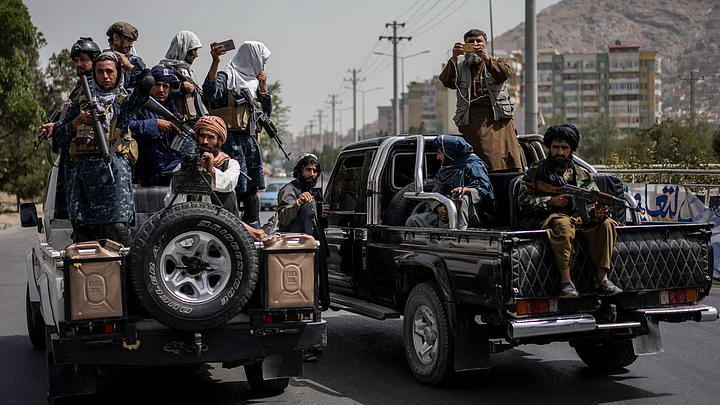A pharmacy worker named Wazir Ahmad Seddiqi, who runs his shop on the side of Herat's main square in Afghanistan, told AP on Saturday, 25 September, that he witnessed the Taliban hang a dead body from a crane.
The horrific act is reminiscent of the Taliban's brutality from two decades ago when it ruled the Islamic Emirate of Afghanistan in accordance with a severely strict interpretation of Sharia law that punished its offenders in barbaric manners amounting to clear human rights violations.
The district police chief of Herat, appointed by the Taliban, Ziaulhaq Jalali, said that the Taliban fighters saved a father and his son who had been abducted by four kidnappers, all of whom were "killed in crossfire".
Wazir told AP that the other three dead bodies had been shifted to different parts of the city with the goal of publicly displaying them to Afghan people.
One of the Taliban's founding members, Mullah Nooruddin Turabi, who also oversaw the implementation of Sharia law when the Taliban were in power between 1996 and 2001, told AP earlier this week that that they will use methods like executions and amputations, albeit not in public, to enforce law and order.
Despite the religious extremist group's assurances of having become less conservative than the last time it was in power, only time will tell whether the Taliban intends to keep its promises of ensuring a relatively free society for the Afghan people.
(With inputs from AP.)
(At The Quint, we question everything. Play an active role in shaping our journalism by becoming a member today.)
